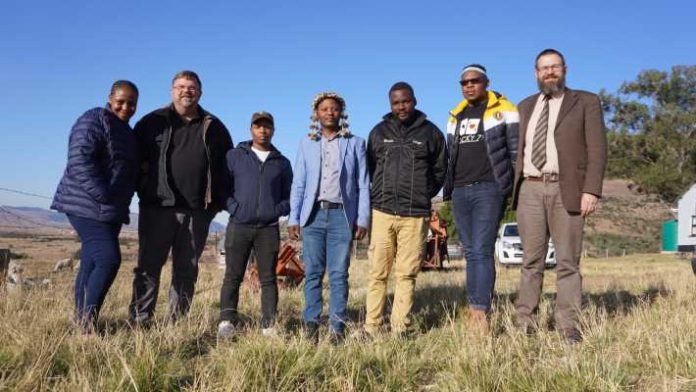
AfriForum, the office of iNkosi (chief) Zwelothando Mabandla, Saai and its agricultural value-chain development partner, Agri All Africa (AaA), took the first steps towards the establishment of a joint agricultural development project for the AmaBhele kaJamangile traditional community. Representatives of AfriForum, the office of iNkosi Zwelothando and AaA had multiple consultative meetings with stakeholders in the agricultural sector in the Eastern Cape over the past week. This follows the signing of a mutual recognition and cooperation agreement between AfriForum and the office of iNkosi Zwelothando earlier this year which, amongst others, is aimed at the promotion of economic, social and cultural development through cooperation in agricultural development.
Consultations were held with The Co-op, local commercial farmers, Hunt SA, Farming God’s Way and SAFPRO. Representatives of The Co-op shared information about its services and the agricultural businesses they are currently supporting in the rural areas of the Eastern Cape. Commercial farmers from the Maclear area, that is located close to the AmaBhele kaJamangile traditional community, were consulted about local conditions and the agricultural potential and challenges of the area. The consultation with Hunt SA revolved around the establishment of possible international exposure for the agricultural development project. Farming God’s Way provided information about their approach to supporting community members to start agricultural production with minimal resources whilst SAFPRO provided information about the agricultural value chain and their approach to supporting emerging farmers.
“Our traditional communities have historically been autonomous and self-sufficient. Different tribes lived within their own space within peculiar values and customs while they respected each other’s identity. The institution of traditional leadership is the structure providing stability in rural areas, this institution also has a role to play in reviving self-sufficiency and autonomy through projects such as this agricultural development project – in cooperation with other cultural communities and stakeholders,” says iNkosazana (princess) Bhelekazi Mabandla, Head of Royal Diplomatic Services of the Jamangile kaMabandla Royal Family.
“There are multiple stakeholders that are already doing excellent work with agricultural development in the Eastern Cape. After interacting with so many institutions and people that have such a positive attitude and that are not only talking, but already doing, I am certain that we will be able to make a success of this planned agricultural development project with the support of a network of committed stakeholders,” says Barend Uys, Head of Intercultural Relations and Cooperation at AfriForum.
“The foundation of restarting successful farming operations in the deep rural areas of the Eastern Cape, lies in restoring the faith in family farming. It is coupled to a value-chain development approach, taking hands with the able and the willing with an utmost faith in our Lord’s grace and love,” says Dr Theo de Jager, Executive Board Chairperson of Saai.
“A commercial farming focus where the local farmers and entities like The Co-op participates, combined with a positive spirit of cooperation in working with traditional communities and emerging farmers, will prove to be invaluable for the future success of any agricultural development in the area,” says Dirk Hanekom, CEO AaA.
A preliminary scoping report and the signing of a memorandum of understanding for the agricultural development project are the planned outcomes of the consultation process and is expected to be finalised at the end of July.
The visit to the province concluded with a meeting with representatives of the community of Ngcolorha, close to Tsolo, about the challenges the community are facing with agricultural production and development.







